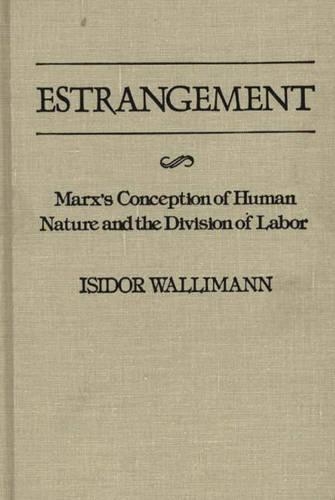
Estrangement: Marx's Conception of Human Nature and the Division of Labor
(Hardback)
Publishing Details
Estrangement: Marx's Conception of Human Nature and the Division of Labor
By (Author) Isidor Wallimann
Bloomsbury Publishing PLC
Praeger Publishers Inc
27th February 1981
United States
Classifications
Tertiary Education
Non Fiction
Social, group or collective psychology
Economic theory and philosophy
Political science and theory
302.544092
Physical Properties
Hardback
224
Width 140mm, Height 216mm
454g
Reviews
Walliman has some important things to say about estrangement. The scholarship involved in his presentation is impressive. His skills as a translator of complex terms are utilized often. His exegesis is comprehensive and well-organized. The coercion and exploitation that characterize so-called free market relationships are made explicit in his presentation of the relationship between commodity production and estrangement. Walliman makes a rigorous effort to show that what Marx called estrangement results not from a juridical category of ownership but from the control of work by a power other than the workers. Indeed, Walliman is at his best when comparing the relationship between the worker and his products in capitalism with the corresponding relationship in slavery and feudalism. In these discussions Walliman does his part, as have other Marxists before him, to retrive the concept of alienation from abstraction. His book deserves to be read for this contribution alone.-Labor History
"Walliman has some important things to say about estrangement. The scholarship involved in his presentation is impressive. His skills as a translator of complex terms are utilized often. His exegesis is comprehensive and well-organized. The coercion and exploitation that characterize so-called free market relationships are made explicit in his presentation of the relationship between commodity production and estrangement. Walliman makes a rigorous effort to show that what Marx called estrangement results not from a juridical category of ownership but from the control of work by a power other than the workers. Indeed, Walliman is at his best when comparing the relationship between the worker and his products in capitalism with the corresponding relationship in slavery and feudalism. In these discussions Walliman does his part, as have other Marxists before him, to retrive the concept of alienation from abstraction. His book deserves to be read for this contribution alone."-Labor History
Author Bio
llimann /f Isidor
